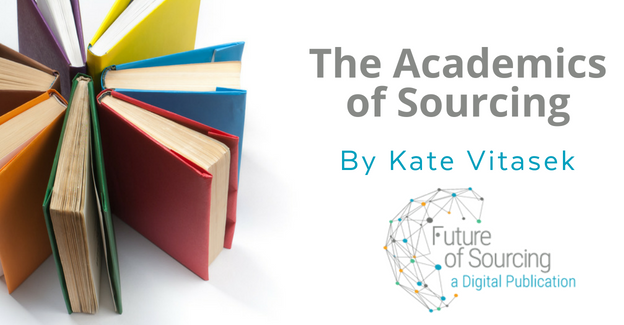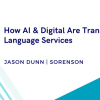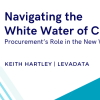For the most part this series has examined the big thinkers in economics who have influenced the development of modern outsourcing. This week I want to focus on Joseph E. Stiglitz, whose work has the power to influence how companies think about globalisation.
Joseph E. Stiglitz, a professor at Columbia University, received the 2001 Nobel Prize (with George A. Akerlof and A. Michael Spence) for his analysis into how markets work with asymmetrical information. Since then, Stiglitz has written and lectured extensively about globalisation and markets with this unsettling message: they aren’t working very well, especially in the context of the new realities of the twenty-first century.
Stiglitz began making his claims about the need to rethink how businesses and organisations approach globalisation well before the 2008 global economic and financial meltdown. In fact, he has two books on globalisation, Globalization and Its Discontents (2002) and Making Globalization Work (2006). His most recent book, Freefall(2010), recounts the events of the 2008 economic collapse and how its effects still persist.
In a 2006 lecture Stiglitz said, “Something is wrong with the way globalisation is turning out. It has not lived up to its promises, and the question is what to do about it.”
Stiglitz points out a critical flaw. “The global financial system is not working the way it ought to. Ordinary laws of physics say that water ought to flow downhill. The parallel in economics is that money is supposed to flow from rich countries to poor countries, and risk is supposed to be transferred from the poor, who are least able to bear it, to the rich. But in the world today, things are moving in the opposite direction. To be precise, for the last several years, money has been going from the poor countries to the rich – the net flow of funds is going in the opposite direction of the way it should.”
He continues: “Meanwhile, the poorest countries in the world are left to bear the risks of interest rate and exchange rate volatility. The result of this has been that, in spite of the fact that economists know a lot more about how to manage an economy today than they did fifty years ago, there have been more than a hundred crises in the last three decades.”
There is much food for thought for outsource practitioners in Stiglitz’s words — especially as they relate to supply chain sustainability. It’s no surprise that globalisation has meant that we have become more integrated and more interdependent. While globalisation brings much value, it also poses challenges in how we need to think (or rethink) existing approaches to globalisation around intellectual property, trade, global financial markets, natural resources and the environment.
Stiglitz — like my fellow researchers at the University of Tennessee working with me on Vested Outsourcing — says that countries and businesses should move away from the old-school win-lose strategies aimed at rewarding some at the expense of others because it is an inherently unsustainable model.
In his book Freefall, Stiglitz points out that The Great Recession and its aftermath “is forcing us to rethink cherished views.” He asserts, “The issue is not whether globalisation is going to change; globalisation will change. The current system simply cannot continue.”
Powerful words from a powerfully smart man.
But what is the answer for change? Stiglitz advocates for more collaboration and win-win approaches. “Greater inter-dependence means that we have to act together; we have, as economists would say, extra responsibilities which mean that we have more need to act cooperatively.”
I agree.
In our work at the University of Tennessee, we have seen the most successful outsourcing relationships revolve around collaborative rather than selfish or muscular me-first relationships. You don’t have to be an economic scientist to see that institutions and governments have not set very good examples on cooperation and collaboration. Without a true collaborative mindset from institutions and governments, it is very difficult to instill those qualities as a default top-down mindset in the globalised outsourcing, business and finance arenas.
If there is any lesson outsource practitioners can take from the global economic collapse of 2008, it is that market decisions based on greed, total self-interest, a knee-jerk aversion to even basic regulation, the constant drive to shift risk and blame while relying on the market to correct itself is not a sustainable model.
I submit that those of us in the global business arena have a responsibility to understand what it really means to succeed in today’s economic and business climate. I have high hopes that our work at the University of Tennessee, which has established the collaborative Vested Outsourcing framework, will help lead the way to achieving win-win relationships that will leverage the skills and expertise inherent in collaborative partnerships and alliances to create a long-term strategic template for success.
The Vested model leverages the best aspects of human relationships — collaboration, flexibility, honesty, innovation and open communication — into the outsource business relationship. Those are precisely the qualities that will make globalisation and capitalism work — or at least work better — for everyone.
Simply put, I agree with Stiglitz. It’s time to reboot for the win-win.






